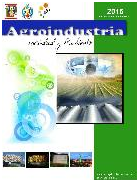Aproximación conceptual a las dimensiones de la inteligencia social.
Núcleo de Desarrollo Endógeno en Venezuela
Palavras-chave:
Inteligencia Social, Desarrollo, Núcleo Endógeno.Resumo
La Inteligencia Social, como factor endógeno permite el desarrollo de adentro hacia fuera, primero en la persona, después en la sociedad y posteriormente en la nación. En este sentido la presente investigación de tipo descriptiva de campo hizo una evaluación de la aproximación conceptual a dimensiones de la Inteligencia Social (I.S) que poseen los integrantes del núcleo de Desarrollo Endógeno de Tintorero, ubicado en el estado Lara- Venezuela. Para ello se aplicó un instrumento en formato de Likert contentivo de veinte ítemes a una población constituida por 59 personas, que eran representantes activos de los núcleos de desarrollo.. Dicho instrumento aplicado paso por un proceso de validez por juicio de experto y prueba de confiabilidad de alfa de cronbach que arrojo un valor de 0,81, garantizando que el instrumento era confiable. Cabe destacar que para el procesamiento de los datos se utilizó estadística descriptiva, mediante el paquete SPSS, versión 20.0, apoyándose en gráficos realizados en Excel para Windows. Los resultados evidencian lo que plantean los teóricos que el Desarrollo Endógeno está determinado por factores inherentes a la Inteligencia Social (I.S), tales como la empatía y las relaciones interpersonales. Así mismo en el contexto de los núcleos endógenos estudiados indican que una de las dimensiones de la I.S como es la Tolerancia, reflejó una tendencia de respuesta que muestra que la mayoría de las veces, los actores sociales de este núcleo, poseen un nivel de tolerancia bajo.
Downloads
Referências
Albrecht, K. (2004) Inteligencia social: La nueva ciencia del éxito. Tomado el día 4 de Octubre de 2010 ).[Documento en línea].
Disponible: http://comunidad.uach. mx/rarroyo/resumenes/414Intelige nciaSocial.pdf] [Consulta: 2014,Octubre, 20]
Boisier, S. (2006). Estudios Sociales: Revista de investigación científica, Vol. 14, Nº. 28, p.p 163-190.
Breuker, A. (2006). Modelo de desarrollo endógeno. Artículo de Opinión, Panorama: 25-5 20.
Orozco, E. (2006). Inteligencia Emocional y Desarrollo Endógeno [Documento en
línea]. Disponible:http://www.gesti opolis.com/canales7/rrhh/inteligen cia-emocional-y-desarrollo- endogeno.htm[Consulta: 2013,mayo, 14]
Orozco, E. (2007). Inteligencia Social. [Documento en línea].Disponible: httpp//www.Gestiopolis. com http://www.gestiopolis.com/organi zacion-talento-2/inteligencia- social-e-intrapersonal-habilidades- demandadas-por-las-empresas.htm [Consulta: 2013,mayo, 14]
Romero, O (1999). Crecimiento Psicológico y Motivaciones Sociales: Rogya. Mérida Venezuela.
Valencia, L. (2011). Inteligencia Social y Perfil operativo en las organizaciones. Universidad San Buenaventura de Medellín, Colombia. Psicología USB
Medellín [Documento en línea].Disponible:http://hdl.handle .net/10819/495] [Consulta: 2014, Enero, 18]
Publicado
Como Citar
Edição
Seção

Este trabalho está licensiado sob uma licença Creative Commons Attribution-NonCommercial-ShareAlike 4.0 International License.




